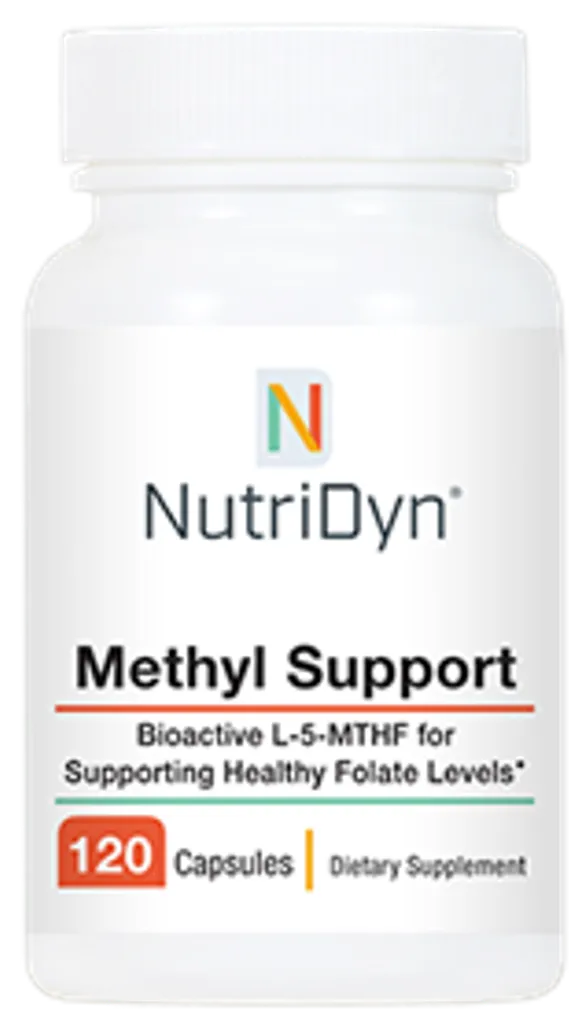Do You Have This Genetic Defect in South Sioux City NE?
The MTHFR Mutation in South Sioux City NE: What It Is and What to Do About It
Each of us has a unique genetic makeup that contributes to our individuality. Understanding your genetic profile can be life-changing. While your genes are not your destiny, knowing potential risks can help you navigate your health journey more effectively. Take Karen, for example:
Karen, a 60-year-old woman, was struggling with multiple health issues: she was overweight, had hypertension, thyroid disease, high insulin and cholesterol levels, and low energy. Her family history was not promising either, with both parents having died young and one with Alzheimer’s disease. To understand her health better, we ordered a 3×4 genetic test. The results were eye-opening.
Understanding the Impact of MTHFR Mutation in South Sioux City NE
The methylenetetrahydrofolate reductase (MTHFR) mutation stood out among Karen’s genetic findings. Approximately 50% of the American population has this mutation, which can significantly impact health, especially in those with autoimmune diseases. The MTHFR enzyme is crucial for converting vitamin B9 (folate) into methyl-folate, essential for methylation. Methylation supports numerous bodily functions, including:
- Repairing cells and DNA
- Processing toxins and hormones
- Metabolizing B vitamins
- Regulating neurotransmitters like dopamine, serotonin, and norepinephrine
I hope you are beginning to see how critical this process is to every cell and System in your body.
One critical function of methylation is converting homocysteine (an amino acid produced in the body) into methionine. Methionine helps build proteins, repair cells, detoxify the body, support the inflammatory response, and assist the liver in processing fats. It also produces glutathione, a powerful detoxifier. Research shows that individuals with autoimmunity and cancer often have lower glutathione levels, suggesting a potential link to MTHFR mutations.
The MTHFR gene provides the instructions for producing the MTHFR enzyme. Genetic mutations, known as single nucleotide polymorphisms (SNPs), can occur in this gene. Approximately 50% of the U.S. population carries at least one SNP in the MTHFR gene. The most studied mutations are C677T and A1298C. Depending on the mutation, you might have none (wild type), one (heterozygous), or two (homozygous) mutations. The more mutations you have, the less effective the MTHFR enzyme performs its duties, which can impact your health.
Managing MTHFR Mutation: Detoxification Strategies
People with reduced detoxification capabilities often have one or more MTHFR mutations. Understanding how these mutations impact detoxification can help tailor effective strategies. Here’s an illustrative example of how MTHFR mutations affect the body’s ability to process toxins:
- No MTHFR Mutation: If you eat a piece of tuna containing ten parts mercury, your body can excrete all ten parts, assuming your detox pathways are optimal.
- One MTHFR C677T Mutation: Your ability to detoxify mercury is decreased by 50%, meaning you can only detoxify five parts and store the other five.
- Two MTHFR C677T Mutations: Your ability to detoxify mercury is decreased by 90%, meaning you keep nine parts mercury and clear only one.
Given daily exposure to various toxins through food, water, air, and other sources, managing detoxification is crucial. If you have an MTHFR mutation, keeping your Detox System functioning optimally is paramount.
The Link Between MTHFR Mutations and Autoimmune Conditions
Individuals with autoimmune diseases with high mercury levels often have at least one MTHFR mutation. This is especially true for those with Hashimoto’s, scleroderma, and rheumatoid arthritis. In Hashimoto’s, the issue is compounded because an underactive thyroid already negatively impacts methylation.
If you have an autoimmune condition, particularly thyroid dysfunction, it is crucial to understand your MTHFR gene mutation status. I recommend getting tested for gene mutations by your 7 Systems Plan provider.

7 Conditions that Affect Methylation
Methylation is essential for DNA repair, detoxification, and neurotransmitter function. Several conditions can impair this process:
1. Oxidative Stress
An imbalance between free radicals and antioxidants damages cells and DNA, depleting folate levels and reducing glutathione, an essential detoxifier.
2. Inflammation
Chronic inflammation increases the body’s methylation demand, exacerbating oxidative stress and lowering glutathione levels, impairing detoxification.
3. Gut Health
An imbalanced gut microbiome can hinder folate production and absorption, which is essential for optimal methylation.
4. Nutrient Deficiencies
Lack of folate, vitamin B12, and other B vitamins disrupts the methylation cycle, affecting detoxification and DNA repair.
5. Heavy Metal Toxicity
Exposure to mercury, lead, and arsenic disrupts enzyme activity in methylation and binds essential nutrients, reducing methylation efficiency.
6. Hormonal Imbalances
Thyroid hormone imbalances, such as hypothyroidism, reduce methylation efficiency by affecting metabolic processes and enzyme activities.
7. Genetic Mutations
Mutations in genes like MTHFR reduce enzyme efficiency, compromising methylation pathways and increasing susceptibility to health issues.
Addressing these conditions can enhance methylation and overall health. How do you know if you have gene mutations? Let’s look at two tests that can provide insights.

Homocysteine Levels as an Indicator of MTHFR Mutations
A homocysteine-level test is a less expensive alternative to MTHFR genetic testing. Although less definitive, it can provide valuable insights into methylation efficiency.
Methylation converts homocysteine into methionine. If you have MTHFR mutations, this conversion is less efficient, leading to higher homocysteine levels in your blood. Elevated homocysteine typically indicates undermethylation, while low levels can signal either over- or undermethylation.
Optimal Homocysteine Levels
- Optimal Range: 6-9 umol/L
- Elevated Levels: Above 10 umol/L, suggesting one MTHFR mutation
- High Levels: Around 18 umol/L, indicating two likely MTHFR mutations
- Low Levels: Below 6 umol/L, possibly indicating over or undermethylation
High homocysteine levels are associated with mental health issues, cardiovascular disease, high blood pressure, poor detoxification, and blood vessel damage. Monitoring these levels can help manage and mitigate these risks.
Genetic Testing for MTHFR Mutations
3×4 genetic testing analyzes the interplay between various genetic markers and how they influence essential bodily functions, including methylation, detoxification, inflammation, and oxidative stress. By understanding these interactions, you can gain valuable insights into how your body processes nutrients, handles toxins, and responds to environmental factors. This holistic approach to genetic testing can reveal underlying issues that might not be apparent with single-gene tests.
3×4 testing can identify additional genetic variations impacting methylation and overall health for those with MTHFR mutations. Essential genes tested include:
- MTHFR: Crucial for converting folate for methylation and detoxification.
- COMT: Involved in breaking down neurotransmitters.
- GST: Plays a role in detoxification.
- SOD2: Protects cells from oxidative damage.
- ACE: Involved in blood pressure regulation.
- APOE: Linked to lipid metabolism and Alzheimer’s risk.
- And many more

Your Genes Are Not Your Destiny—Karen’s Transformation
Karen’s genetic test showed mutations in MTHFR, ACE, and APOE genes, putting her at risk for detox problems, hypertension, hyperlipidemia, and Alzheimer’s disease. Having been dealt this hand, what could Karen do?
Epigenetics studies how environmental factors can turn gene expression on and off, showing that genes are not static. For instance, identical twin studies reveal that only 25% of autoimmune disease risk is genetic, with 75% influenced by the environment. This means you can control your health through lifestyle and environmental choices.
3×4 genetic testing examines various genes to provide a comprehensive health overview. With this information, you and your 7 Systems provider can create a personalized health plan, including nutritional support, lifestyle changes, and detoxification strategies tailored to your genetic profile.
This testing empowers you to make proactive health decisions, reducing risks linked to genetic predispositions. Addressing potential issues early can improve your quality of life and prevent chronic conditions related to impaired methylation and detoxification. This information represents a significant step forward in personalized medicine, offering a deeper understanding of how your genes affect your health and how you can take control.
Supporting Methylation
To support optimal methylation:
1. Eat a healthy diet: Follow the 7 Systems Plan that supports detoxification with foods high in folate, like leafy greens. Reduce oxidative stress with antioxidant supplements like Dynamic Fruits & Greens and real food.
2. Manage inflammation: Follow the 7 Systems Plan to adopt an anti-inflammatory diet and include functional foods like InflamEze.
3. Improve gut health: Boost your microbiota with a balanced diet and the NutriDyn probiotic Akkermansia +.
4. Methylation Support: Remember the MTHFR enzyme is crucial for converting vitamin B9 (folate) into methyl-folate for methylation. If your body cannot produce much of this enzyme due to a gene problem, you can supplement with Methyl Support, which contains bioactive L-5-MTHFR.
5. Avoid Toxins: Reduce exposure to environmental toxins by avoiding processed foods, reducing plastic use, and choosing organic produce. These changes are important for everyone, especially those with gene mutations.
6. Exercise Regularly: Physical activity promotes circulation and sweating, aiding in detoxification.
7. Detox: Karen began her plan with the NutriDyn 10-day detox kit, something I believe everyone should do at least once a year.
After her testing, Karen followed the 7 Systems Plan course and supported her Detox System with the steps above. In six months, she lost 50 pounds, normalized her cholesterol and insulin levels, and regained her energy. Each of her 7 Systems functioned optimally again. Knowing that she has genes that could increase the chances of Alzheimer’s disease, she is committed to maintaining a healthy lifestyle.
Conclusion
The MTHFR mutation is a common genetic variation that can significantly impact health, especially in those with autoimmune conditions. Understanding your genetic makeup, getting tested, and making lifestyle changes can optimize your health and reduce the risk of associated conditions. Remember, your genes are not your destiny. With awareness and action, you can take control of your health and live a vibrant, balanced life.
For your health,
Dr. Pat
Video of the Week
Sign up below to get our weekly newsletter
sent directly to your email inbox!
OFFICE HOURS
Monday
8:00am - 6:00pm
Tuesday
8:00am - 6:00pm
Wednesday
8:00am - 6:00pm
Thursday
8:00am - 6:00pm
Friday
8:00am - 6:00pm
Saturday
8:00am - 10:45am
Sunday
Closed
Tri-State Physicians &
Physical Therapy Clinic
3900 Dakota Avenue #6
South Sioux City, NE 68776









